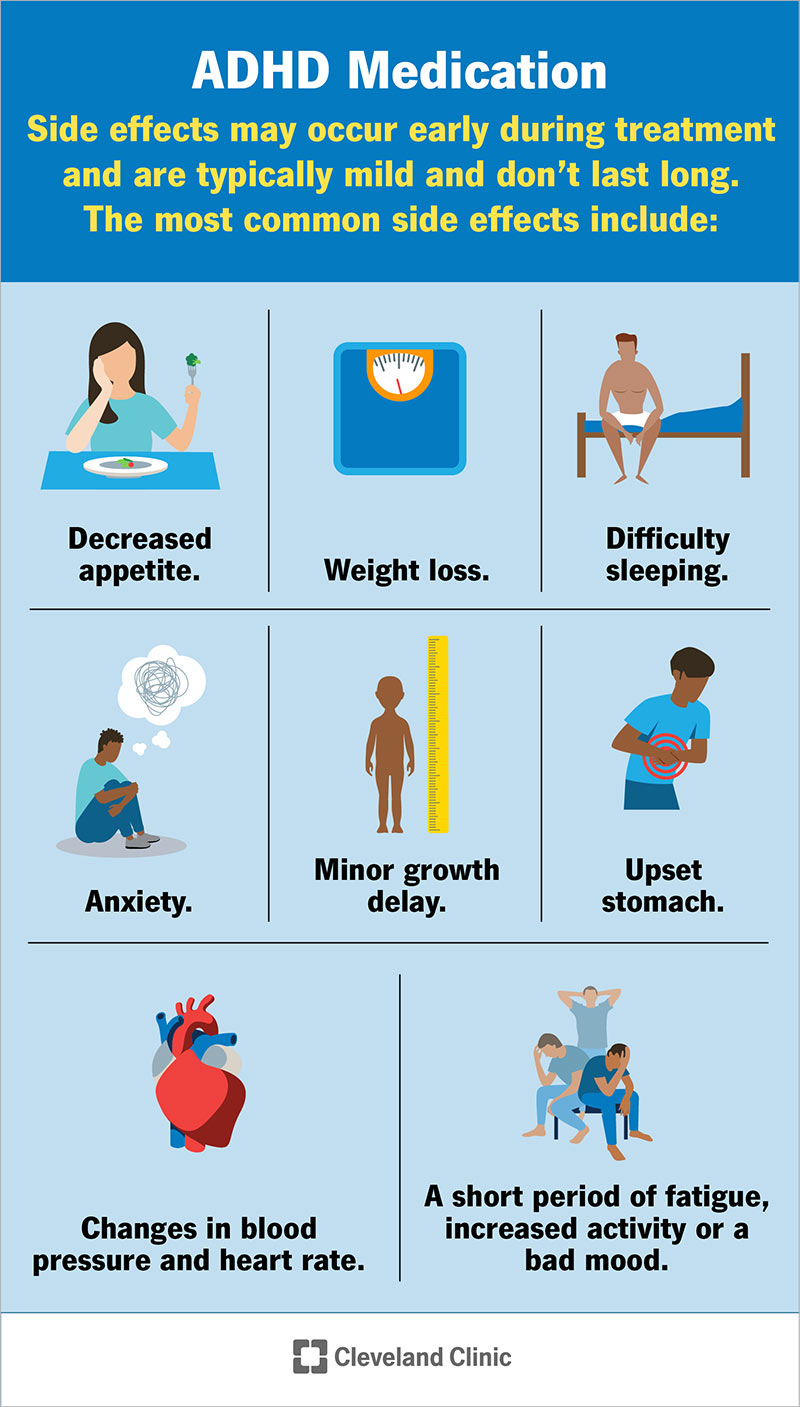Exploring Effective ADHD Treatment Alternatives for All Ages
The complexities of Interest Shortage Hyperactivity Problem (ADHD) present distinct challenges across various age, demanding a comprehensive expedition of efficient therapy options. A combination of behavioral therapies, medicinal interventions, and way of living modifications has actually shown promise in attending to the varied needs of people with ADHD. The efficiency of these techniques can vary substantially based on personal conditions, elevating crucial inquiries regarding tailored techniques. As we examine the range of therapy methods readily available, it becomes necessary to think about not just their prompt influences but additionally their long-lasting implications for people and households.
Recognizing ADHD and Its Impact
Attention-Deficit/Hyperactivity Disorder (ADHD) is a neurodevelopmental problem identified by consistent patterns of inattention, attention deficit disorder, and impulsivity that can considerably impact numerous aspects of a person's life. It generally shows up in youth, although signs can linger into the adult years. The core symptoms of ADHD can interfere with instructional performance, prevent social interactions, and complicate work ventures.
People with ADHD usually have problem with maintaining concentrate on tasks, arranging tasks, and following up on instructions, which can result in scholastic underachievement (Depression Treatment). In social contexts, impulsivity may lead to difficulties in developing and sustaining relationships, as people might interrupt conversations or make hasty decisions without taking into consideration consequences
The irregularity in signs and symptom discussion implies that ADHD can impact individuals in a different way, requiring an individualized technique to administration. Comprehensive understanding of ADHD's nature and effects lays the foundation for discovering appropriate treatment options tailored to each person's demands.
Behavioral Therapies for ADHD
Numerous behavior treatments have actually been developed to successfully address the challenges linked with ADHD, concentrating on modifying details actions and promoting essential abilities. Among one of the most identified strategies are cognitive-behavioral therapy (CBT), parent training, and social abilities training.
CBT aids people identify and change unfavorable thought patterns and behaviors, promoting an extra positive overview and enhanced self-regulation. This therapy typically includes functional approaches for managing impulsivity and improving organization. Moms and dad training programs encourage caregivers by outfitting them with strategies to enhance favorable behaviors and established constant boundaries, which can be especially helpful for youngsters with ADHD.
Social abilities training is another crucial component, training individuals with ADHD exactly how to communicate properly with peers - Depression Treatment. This method usually entails role-playing and responses to boost communication, teamwork, and conflict resolution skills
Integrating these behavior therapies into a detailed therapy plan can substantially boost working and lifestyle for people with ADHD. Ultimately, the effectiveness of these treatments relies on customized methods that think about the one-of-a-kind needs of each person, thus cultivating durability and adaptability in everyday life.
Medicine Options Available
For several people with ADHD, drug can play a considerable duty in taking care of signs and symptoms and enhancing overall functioning. Both main classifications of drugs suggested for ADHD are energizers and non-stimulants.
Energizers, such as methylphenidate and amphetamine-based drugs, are one of the most commonly used therapies. These drugs work by increasing the levels of neurotransmitters, particularly dopamine and norepinephrine, in the mind, which aids boost interest and minimize impulsivity and attention deficit disorder. They usually generate quick outcomes, making them a recommended alternative for lots of patients.

It is necessary for doctor to conduct an extensive assessment to determine the most ideal medication based upon private requirements, medical history, and prospective adverse effects. Routine follow-up and tracking are likewise important to make sure the performance of the selected treatment and to make any type of required adjustments.
Lifestyle Adjustments to Take Into Consideration
Taking care of ADHD properly expands past medicine, as lifestyle adjustments can significantly enhance overall health and signs and symptom control. Integrating structured routines is critical; constant routines assist people with ADHD handle their time successfully and decrease feelings of overwhelm.
Normal exercise is another vital element. Exercise not just assists to improve focus however also check this boosts state of mind and decreases stress degrees. Activities such as yoga exercise or team sporting activities can be particularly useful, promoting both physical health and fitness and social interaction.
Nourishment also plays an essential role. Depression Treatment. A well balanced diet regimen abundant in omega-3 fatty acids, entire grains, and lean proteins can add to enhanced emphasis and cognitive feature. Restricting sugar and processed foods is suggested, as these can worsen hyperactivity and impulsivity
Sleep hygiene is necessary for handling ADHD signs and symptoms. Establishing a routine rest timetable and creating a relaxing atmosphere can boost sleep quality, resulting in far better focus and psychological regulation.
Different and All Natural Approaches
Alternative and holistic methods to ADHD therapy use a varied series of options that enhance typical methods. These link strategies typically concentrate on way of living alterations, dietary interventions, and therapeutic practices that aim to enhance overall well-being while dealing with ADHD symptoms.

Mindfulness and behavioral therapies are likewise obtaining grip as holistic interventions. Practices such as yoga, meditation, and cognitive-behavioral therapy can cultivate self-regulation and enhance attention. These techniques support psychological durability, which is especially helpful for people with ADHD.
Organic supplements, such as ginkgo biloba and ginseng, are sometimes explored; however, it is crucial to consult health care specialists prior to including these right into treatment strategies. While alternative and holistic techniques can give valuable support, they must preferably be made use of combined common symptoms of depression with evidence-based therapies to achieve ideal results for taking care of ADHD across every ages.
Conclusion
In summary, reliable ADHD therapy requires a detailed approach that consists of behavior treatments, medicine, way of life alterations, and holistic techniques. Tailored interventions can dramatically improve individuals' working and lifestyle, while appropriate medication makes certain ideal sign management. Embracing organized regimens, engaging in routine physical activity, and exercising mindfulness can boost psychological regulation and attention. This multifaceted technique underscores the value of personalized care in resolving the varied requirements of people with ADHD across all age groups.